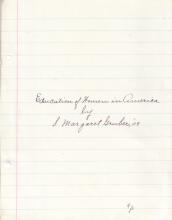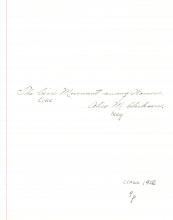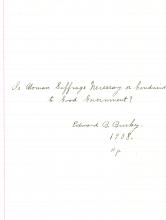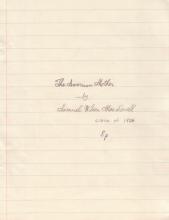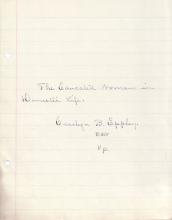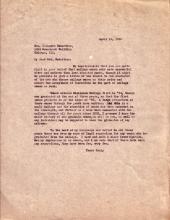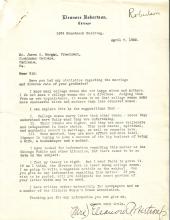A Female Graduate of the Class of 1923 Described Herself as an Activist While Attending Dickinson College
In her 1979 Women as Leaders Survey sent out by Dickinson College, a graduate of 1923 remembers her days at Dickinson. When asked about the issues of the day, the alum remembers, "our topic of debate was the Equal Rights Amendment."
She goes on to recall the anger at there being two senates: a women's and a school senate run by men. To protest the issue, a group of women attended the men's senate.

